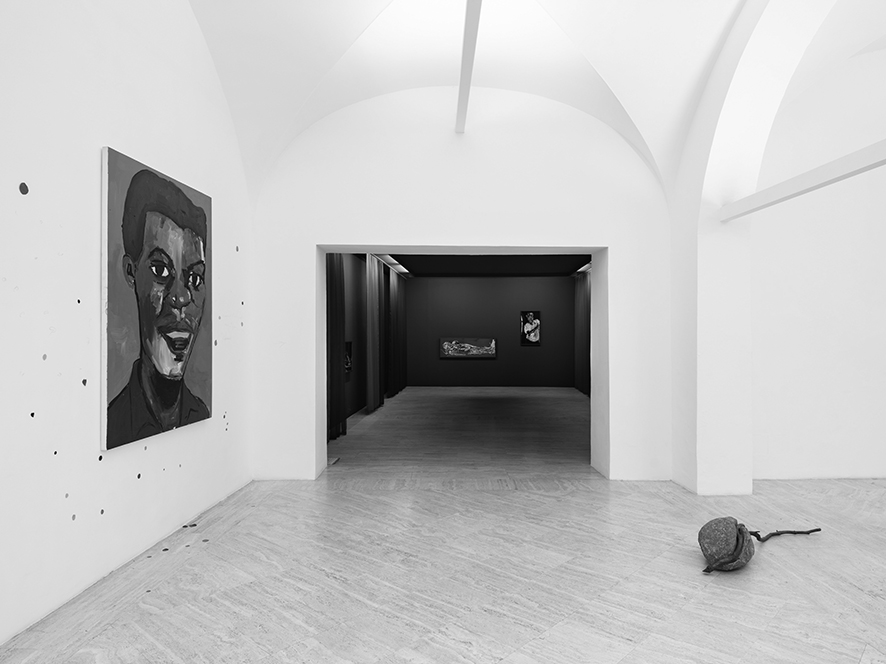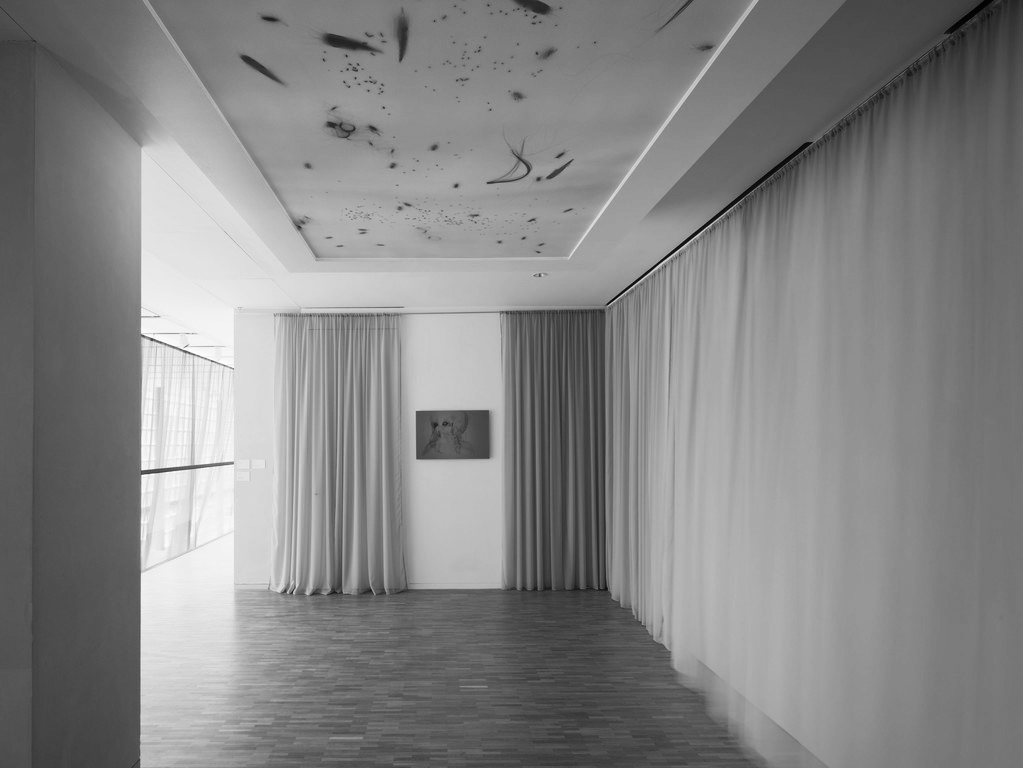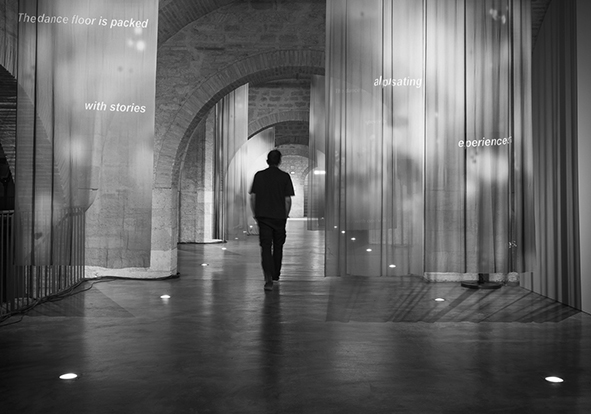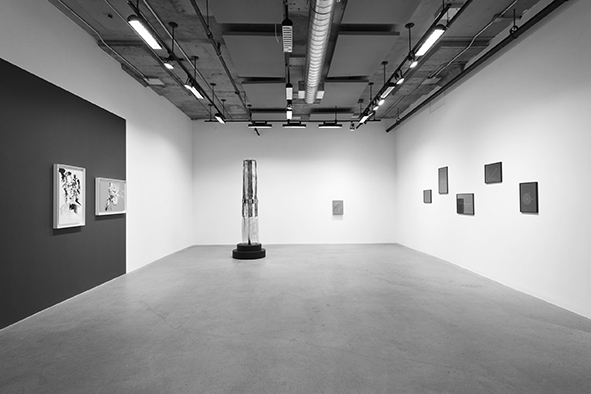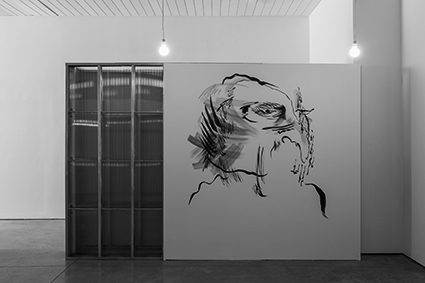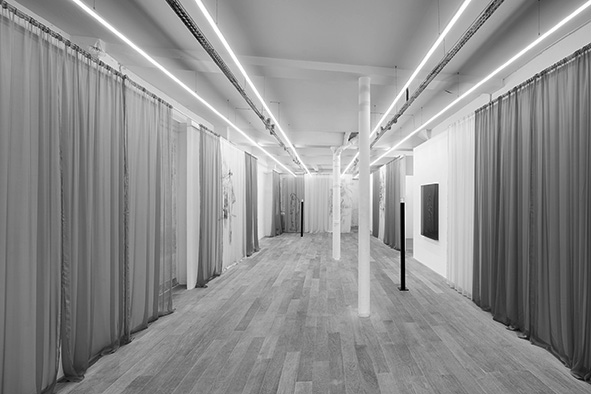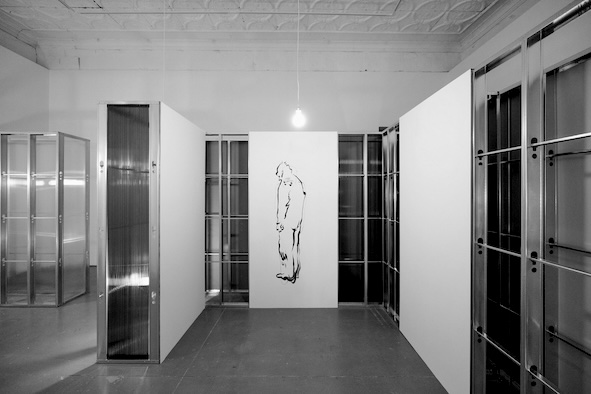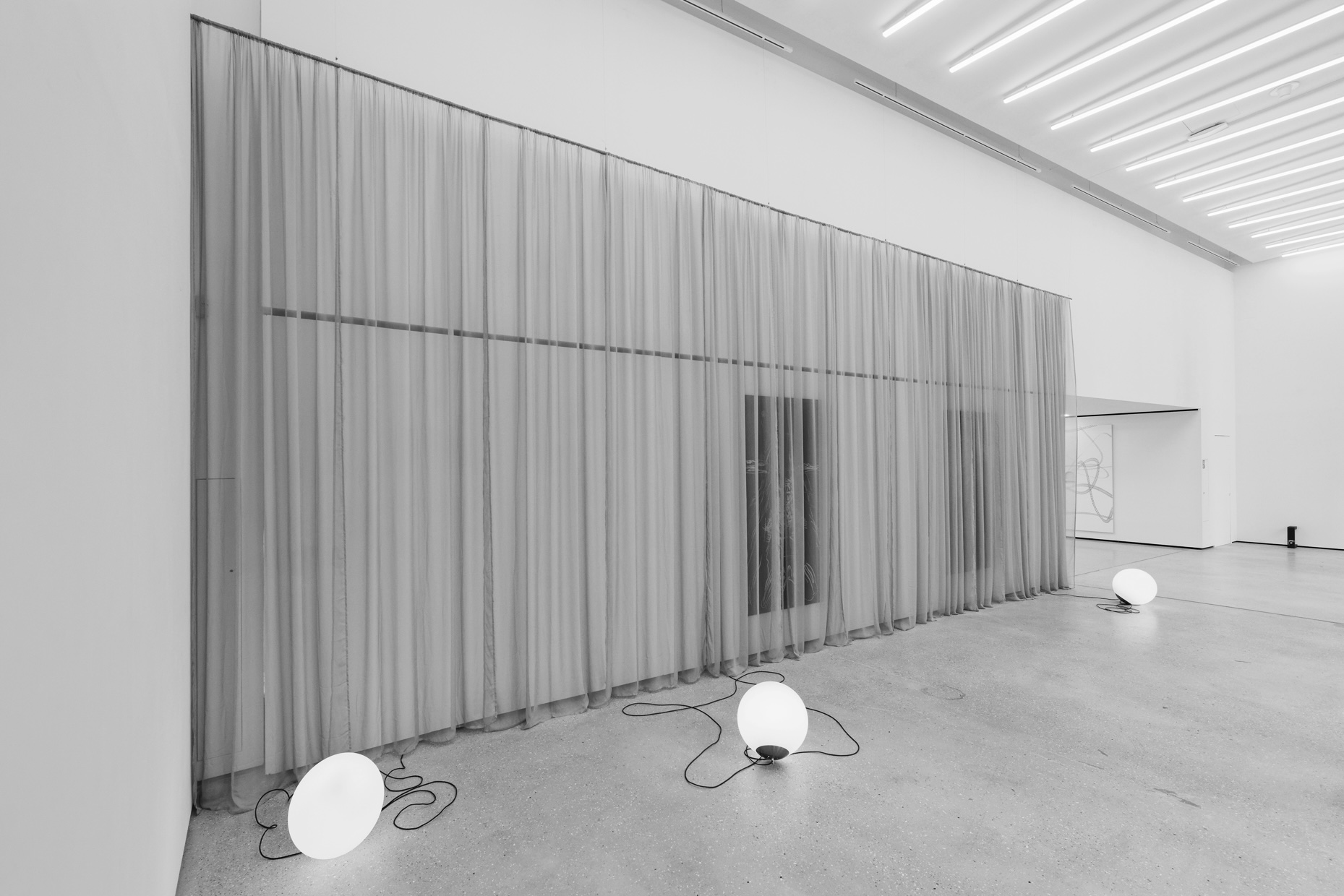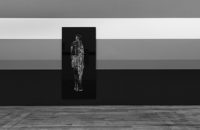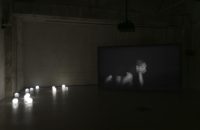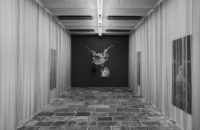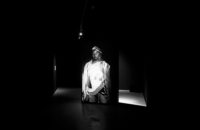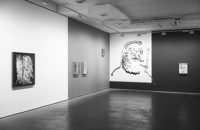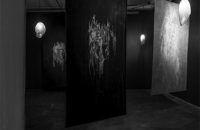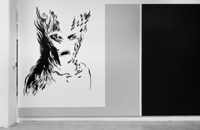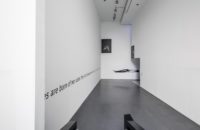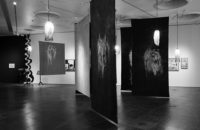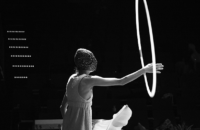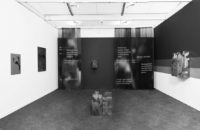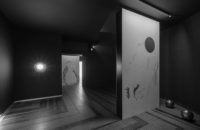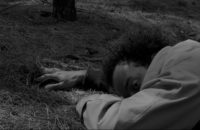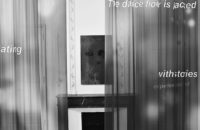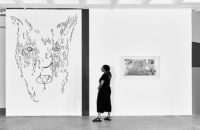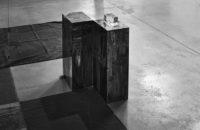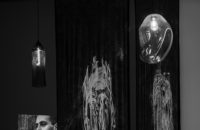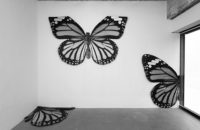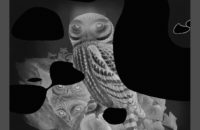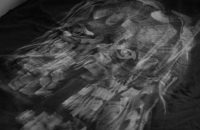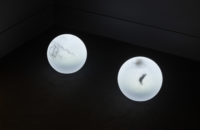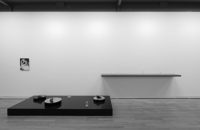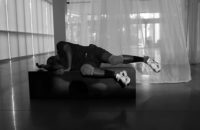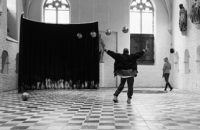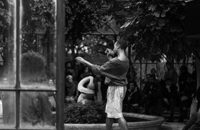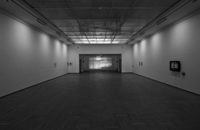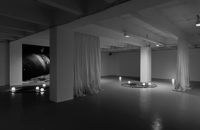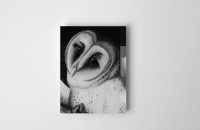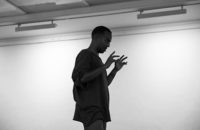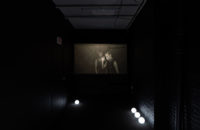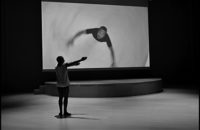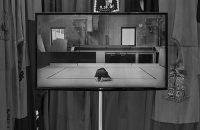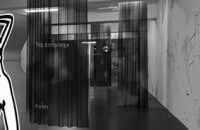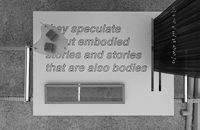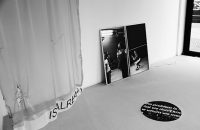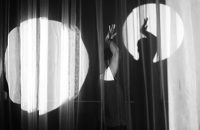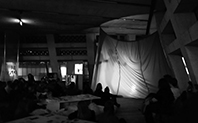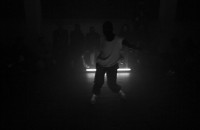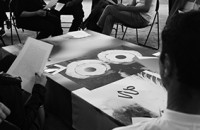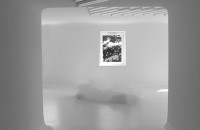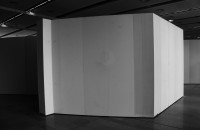On the night preceding the closing day of his first solo exhibition, I Lost Track of the Swarm, showing at South London Gallery, Paul Maheke performed at a party thrown by @Gaybar at DRAF. In the middle of a circle of gallery-partiers and queers, Maheke modulated his step like a concertina through one continuous phrase, locking eyes with whoever happened to be standing in front of them. The room was into it, into his dancing. With Maheke’s white outfit illuminated by four floor-lying fluorescent purple tubes, everyone’s energy was absorbed by a kinesis that, refusing to perform, was difficult to see. We fell silent.
A few days later I saw Maheke again, this time in conversation with New York-based activist and artist niv Acosta, as part of a programme of events Maheke had coordinated to run alongside his show. During the Q&A an invigilator, who was present in the audience, raised his hand and told the speakers that I Lost Track offered “a space to relax,” in response to which an artist and woman of colour, also sitting in the audience, commented on the acrylic sheets that had hung down from the architraves of the first of two exhibition rooms, suffusing its listening environment with light crystals. “Lavender suits brown skin,” she said.Those diaphanous sheets represent one of several design modifications that work to subtly rezone the domestic interior of SLG’s upper rooms. In the first room you enter, the warp and weft of the former vestry’s wooden floorboards are covered over with a homely white rug, inviting repose. Two sets of Sennheiser headphones tacked to the wall play a mix produced by London-based artist Nkisi (Melika Ngombe Kolongo), of NON Worldwide, a collective of African and African diasporic artists. Nkisi’s mix, which may or may not accompany the second room’s movement – we don’t know – synthesises West African club beats with minimal electro and traditional songs from the clan of Maheke’s father in Congo (Leele). Two wall-mounted speakers play this collage of sounds at a minimal hum, in response to the neighbours’ complaints. I feel like dancing but instead lie down to listen. “In the midst of lavender rooms we are dancing towards transformation.” These are words that reach the listener from a distance, connecting you to the mother law of a matriarchal lineage, drawing you closer to a history written through the body –– a gesturing that, absent from view, returns you to yourself.In the second, larger room, three metallic poles are set in triangle formation; they support monitors that rise up from the ground like people. There is a single grey panel sown onto finely netted curtains that are drawn around the window bay, masking the natural light coming in from the North. “The wavering of the swarm as a resilient flicker; a gesture towards transformation,” is digitally printed there. Overhead a light box weighs down like a new sky, eerily containing species of grass insect, clumps of dirt, and wavy strands of hair. Later I learn that these are in fact pieces of scattered plastic, but the effect remains the same. Lavender light is collected from the bare floorboards and held up there, in the light box, where it drops over skin, hair and clothes, softly reckoning movement, a swarm.Under this subterfuge we see Maheke dance, without audio, via each of the monitors. He holds a light source in hand, intermittently transferring this to his belt, so that a silhouette grows and shrinks over the intersecting white planes of the video backdrop. For periods of time the monitors phase into stillness, reenergising the light of the canopy as we stand below. Movement, when we do see Maheke, starts with the hips, and spreads outwards through slowly twisting limbs, sexily and sombrely, like a fugue without music.‘A world against you can be experienced as your body turning against you,’ writes Sara Ahmed on her feminist killjoys blog, in a 2014 post comparing racism to an attack on the immune system. Beginning with the epidermis, Maheke’s I Lost Track provides the affective tools and space, without fixing on representation, for audiences to meditate on brownness and blackness in the context of the contemporary art institution.
Paul Maheke: I Lost Track of the Swarm, South London Gallery, March 18 – May 22 2016
